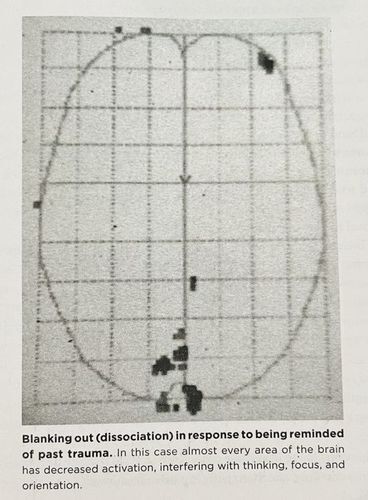Fight/Flight/Freeze
"Fight/Flight/Freeze" Response (FFF) is our sympathetic nervous system's response to a perceived threat.
It's a biological mechanism that we can observe in animals as well as humans and is NOT connected to rational thought.
some Physical Symptoms:
- a surge of the hormone adrenaline
- a surge of the hormone cortisol
- a surge of the hormone glucose
These hormonal changes result in:
- elevated heart rate
- shorter, shallower breathing
- feeling hot or sweaty
- widened eyes (whites of eyes more visible)
- reduction in peripheral vision
- stiffening of muscles
- reddening of face
- a surge of energy and strength
- a sudden scream or verbal outburst
some Emotional Symptoms:
- the urge to hurt someone or destroy something (fight)
- the urge to run far away or hide (flight)
- a feeling of paralysis, like your body is suddenly stuck in mud and every movement is a lot of effort (freeze)
- a sense that your or someone else's life is in danger
- hopelessness
- a narrowed focus/inability to see a broader perspective
- inability to find words or answer questions
Dissociation

The brain scan above was taken by Dr. Bessel Van der Kolk. He includes it on page 71 of his book, The Body Keeps the Score. It records the brain activity of one of his patients while she is reliving the story of a traumatic car accident she experienced. The white areas of the brain are not activated. She is dissociating, also known as blanking out or depersonalizing.
Dissociation is an extreme manifestation of the biological freeze response to a threat. Most of us have seen images of wildlife playing dead in the presence of a predator; we do it too. In fact, once we learn that this is an effective way to deal with childhood trauma in the home, it becomes our body's default response to intense emotions. During abuse or a life-threatening situation, dissociation may have prevented a psychic break. When our minds lack the capacity to handle an experience, they can automatically separate themselves from the body. In the middle of a traumatic event, especially when we're a kid, dissociation allows us to survive and minimizes mental damage.
But our bodies tend to hang onto this response years, even decades after the traumatic event. In the East, the chronic separation of mind and body when it's no longer protective results in "dis-ease," and Western medicine has linked long-term dissociation to many life-threatening illnesses.
When you're with someone who is dissociated, you observe a blank affect and a sense of the person distancing themselves from any and all emotion. The dissociated person often stares into space, is unresponsive while conscious, and their body can seem either limp or rigid, but paralyzed in either case. People have described feeling as if they are hovering over their bodies while dissociated, and sometimes even can't feel physical stimulus. This is a state of extreme survival reflex, one we're not meant to remain in for very long.
It's been estimated that we spend MOST of our day in FFF, reacting to daily stresses that trigger old traumas.
How can we change this unhealthy neural reaction? Click HERE...











